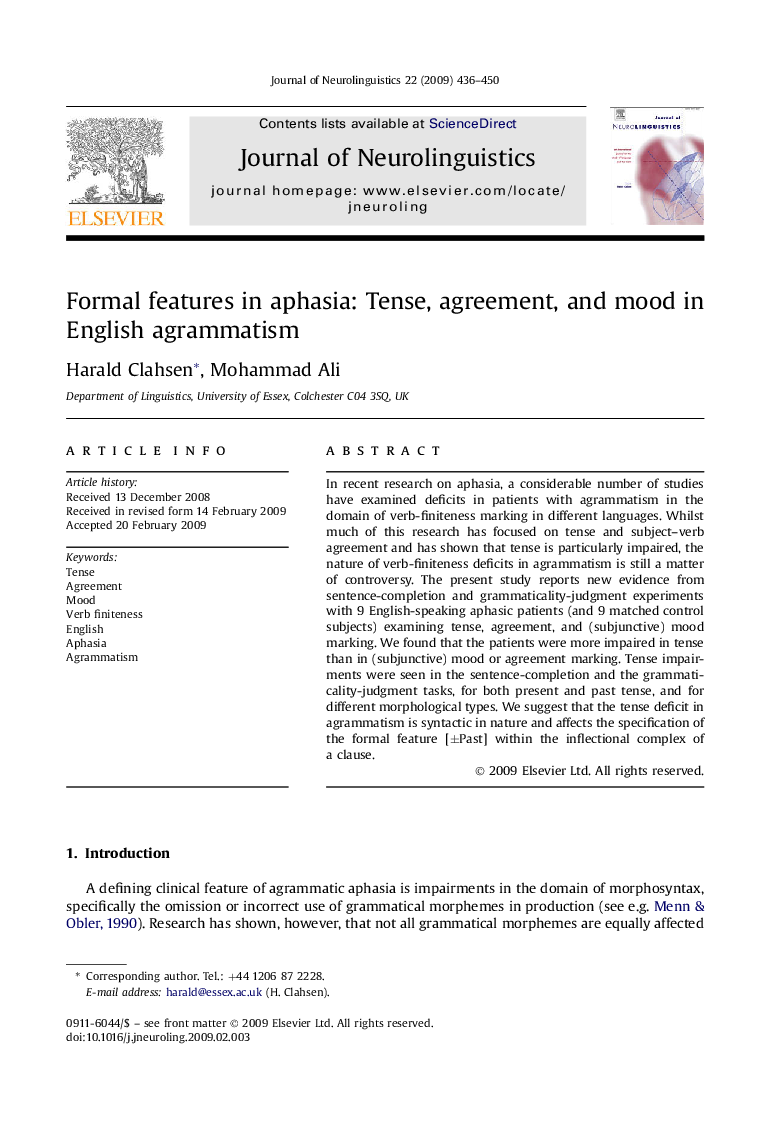| Article ID | Journal | Published Year | Pages | File Type |
|---|---|---|---|---|
| 911971 | Journal of Neurolinguistics | 2009 | 15 Pages |
In recent research on aphasia, a considerable number of studies have examined deficits in patients with agrammatism in the domain of verb-finiteness marking in different languages. Whilst much of this research has focused on tense and subject–verb agreement and has shown that tense is particularly impaired, the nature of verb-finiteness deficits in agrammatism is still a matter of controversy. The present study reports new evidence from sentence-completion and grammaticality-judgment experiments with 9 English-speaking aphasic patients (and 9 matched control subjects) examining tense, agreement, and (subjunctive) mood marking. We found that the patients were more impaired in tense than in (subjunctive) mood or agreement marking. Tense impairments were seen in the sentence-completion and the grammaticality-judgment tasks, for both present and past tense, and for different morphological types. We suggest that the tense deficit in agrammatism is syntactic in nature and affects the specification of the formal feature [±Past] within the inflectional complex of a clause.
